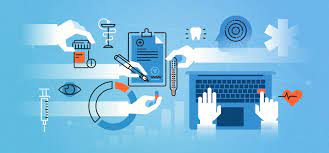In the ever-evolving healthcare landscape, medical coders are more than just data entry specialists. They're the language translators of the medical world, deciphering complex diagnoses and procedures into standardized codes that drive critical functions like billing, reimbursement, and research. But beyond the technical expertise lies a hidden benefit: a potent cocktail of cognitive skills honed through the rigorous discipline of medical coding.
1. Attention to Detail: Medical coders are masters of precision. They meticulously analyze medical records, identifying subtle nuances in diagnoses and procedures, and translating them into the correct codes with unwavering accuracy. This meticulous attention to detail spills over into other aspects of life, enhancing your ability to focus, prioritize, and catch even the smallest errors.
2. Critical Thinking: Medical coding is not a mere matching game. Coders must analyze complex medical narratives, understand the relationships between diagnoses and procedures, and apply intricate coding rules to arrive at the most accurate code. This constant exercise strengthens your critical thinking muscles, teaching you to analyze information logically, identify inconsistencies, and make sound judgments under pressure.
3. Problem-Solving: Coding challenges are a daily occurrence. Ambiguous documentation, conflicting diagnoses, and missing information are just a few hurdles coders encounter. But instead of throwing in the towel, they learn to navigate these complexities, research relevant resources, and creatively apply their knowledge to find the optimal solution. This problem-solving prowess becomes a valuable asset in all areas of life, empowering you to tackle challenges with confidence and resourcefulness.
4. Memory Magic: Medical coders are walking medical encyclopedias. They juggle a vast array of medical terms, codes, and regulations, constantly accessing and applying this knowledge in their daily tasks. This rigorous mental workout strengthens your memory, improves information retention, and enhances your ability to learn and adapt to new information quickly.
5. Communication Clarity: Medical coding isn't just about numbers; it's about clear communication. Coders must collaborate with physicians, nurses, and other healthcare professionals, ensuring accurate and timely transmission of vital medical information. This fosters excellent communication skills, teaching you to express complex concepts in a concise and unambiguous manner, a valuable skill in any professional setting.
6. Multitasking Mastermind: The world of medical coding is a symphony of deadlines and demands. Coders juggle multiple tasks simultaneously, prioritizing coding assignments, addressing queries, and meeting tight deadlines. This dynamic environment hones your multitasking abilities, empowering you to manage complex workloads efficiently and maintain focus amidst competing priorities.
Beyond the Code:
The cognitive skills developed through medical coding are not confined to the healthcare realm. They translate into valuable assets across diverse career paths, including:
· Clinical research: Analyzing data, identifying trends, and applying critical thinking to research findings. clinical research course eligibility.
· Clinical data management: Ensuring data accuracy, integrity, and compliance with regulations.
· Pharmacovigilance: Monitoring drug safety, analyzing adverse event reports, and identifying potential risks.
· Regulatory affairs: Understanding and applying complex regulations, navigating approval processes, and ensuring compliance.
Investing in Yourself:
A medical coding course is not just about learning medical terminology and coding rules. It's an investment in your cognitive skills, sharpening your mind, and equipping you with valuable assets for a successful career in healthcare and .career option after bpharm So, unleash your inner brainpower, embrace the challenge of medical coding, and unlock a future filled with opportunities and intellectual growth.





Comments